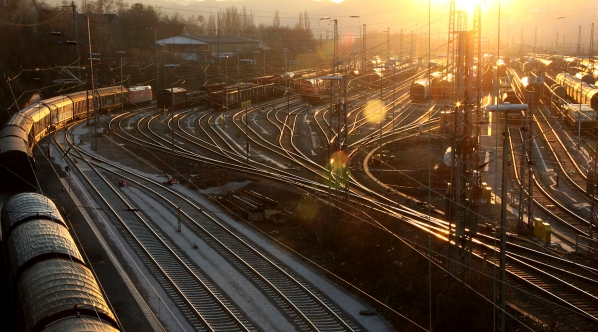The proposal was announced in March to support the delivery of its European Green Deal objectives for transport, which calls in particular for accelerating the shift to sustainable and smart mobility. While transport accounts for a quarter of the EU’s greenhouse gas emissions, the EU is targeting a 90% reduction by 2050.
As part of the Green Deal, the European Commission (EC) has called for a substantial amount of the 75% of inland freight currently carried by road to be shifted onto rail and inland waterways.
The proposal adopted by Tran on October 12 says that as one of the most environmentally friendly and energy-efficient transport modes, rail must play a significant role in accelerating the reduction in transport emissions.
While rail’s share of the passenger market increased from 7% to 7.6% between 2007, its share of the freight market has dropped from a peak of 19% in 2011 to 16.65% in 2017.
“Many obstacles remain to achieve a true Single European Rail Area, including in respect of the need to minimise noise,” the proposal says. “Overcoming these obstacles together with cost reduction and accelerated innovation will allow rail to realise its full potential. Rail therefore needs a further boost to become more attractive to passengers and businesses as a means of transport that meets both their daily and more long-distance mobility needs. Increasing the share of passengers and freight moving by rail will also contribute to decreasing both congestion and emissions dangerous for human health, in particular air pollution.”
The Year of Rail will include a number of initiatives across Europe, including:
- initiatives and events to promote debate, raise awareness and facilitate citizens, businesses and public authorities' engagement to attract more people and freight to rail
- exhibitions, information, inspiration, education and awareness-raising campaigns to encourage changes in passenger, consumer and business behaviour and to stimulate an active contribution of the general public to achieving the objectives of more sustainable transport
- sharing experience and good practices of national, regional and local authorities, civil society, business and schools on promoting the use of rail and on how to implement behavioural change at all levels
- the undertaking of studies and innovative activities and the dissemination of their results on a European or national scale, and
- the promotion of projects and networks related to the European Year, including via the media, social networks and other online communities.
“By reaching out to citizens, beyond the railway sector, through dedicated events and communication campaigns, it will convince more people and businesses to make use of rail,” the proposal says.
The year will be significant for the sector, as it will be the first full year where the rules agreed under the Fourth Railway Package will be implemented throughout the EU, including with the opening of the domestic passenger services market.
EU member states have been requested to appoint a national coordinator responsible for organising their participation in the European Year of Rail. A European steering group, including representatives of the national coordinators, will then be set up.

